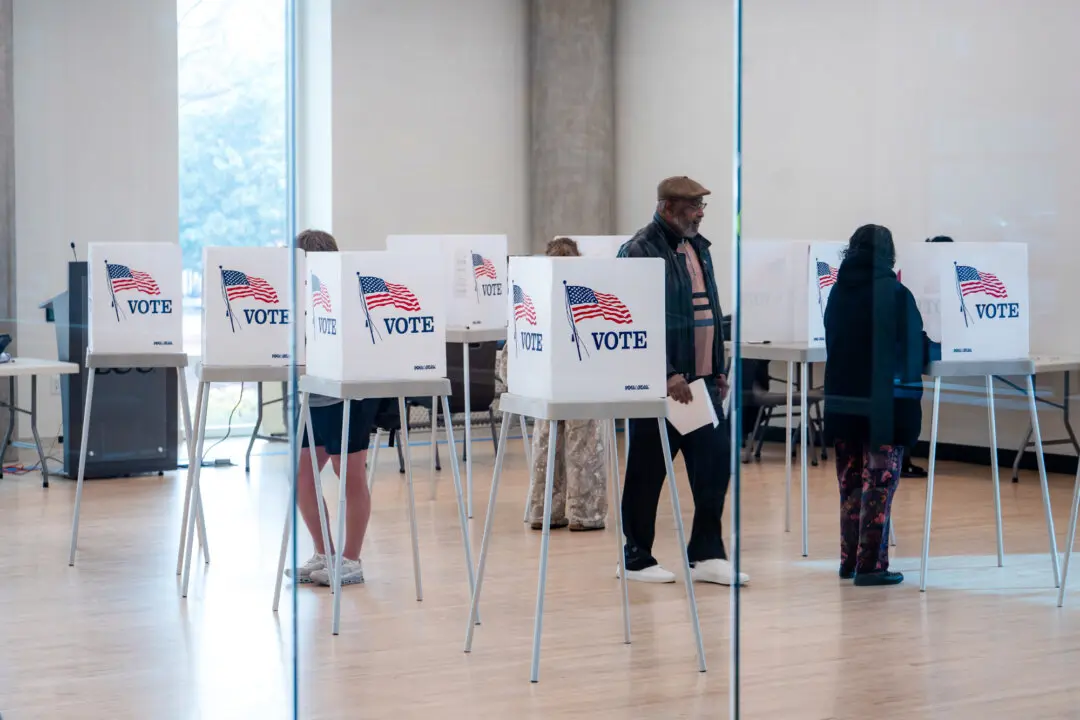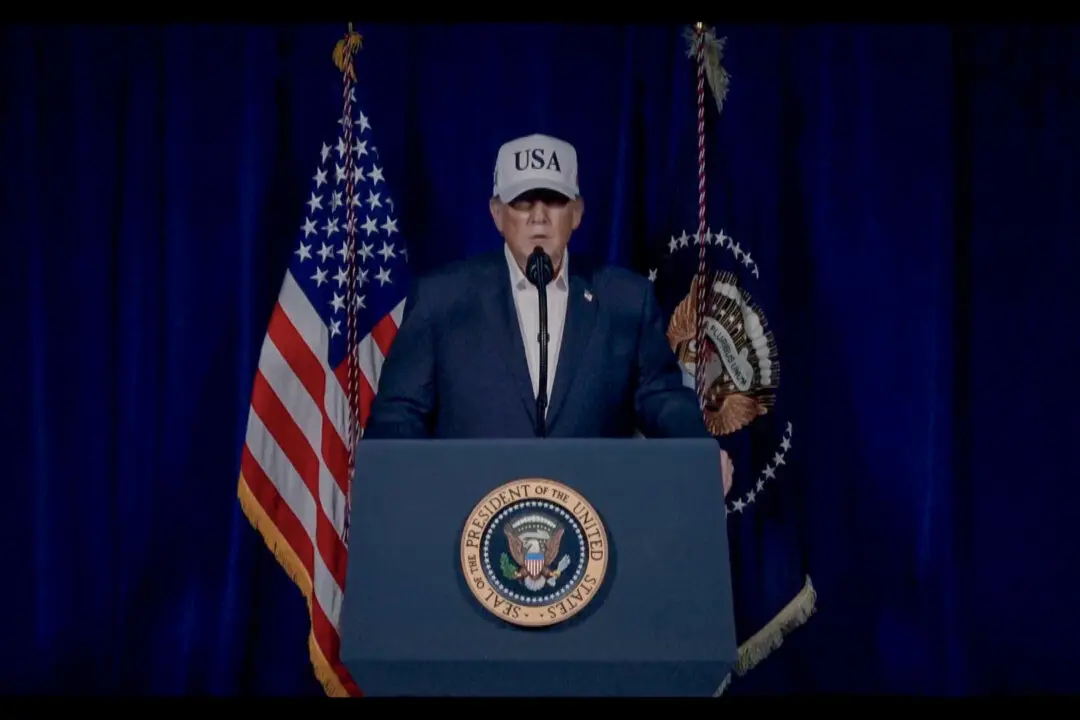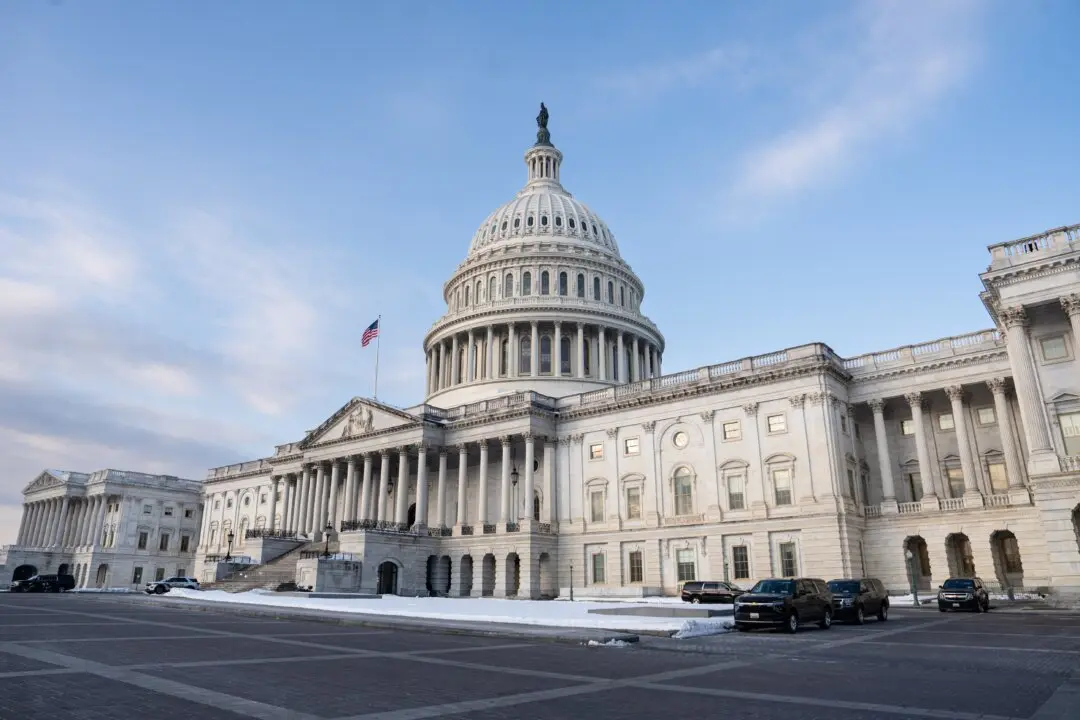Sen. John Cornyn (R-Texas) said during a Dec. 21 interview that he had texted moderate Sen. Joe Manchin (D-W.Va.) about joining the Republican Party amid the vitriolic backlash over Manchin’s decision to vote against his party’s $1.85 trillion social spending legislation.
Cornyn told KXAN, an Austin, Texas-based radio station, that he had reached out to Manchin following the West Virginian’s Dec. 19 appearance on “Fox News Sunday,” when he announced his decision to not support the spending measure.





